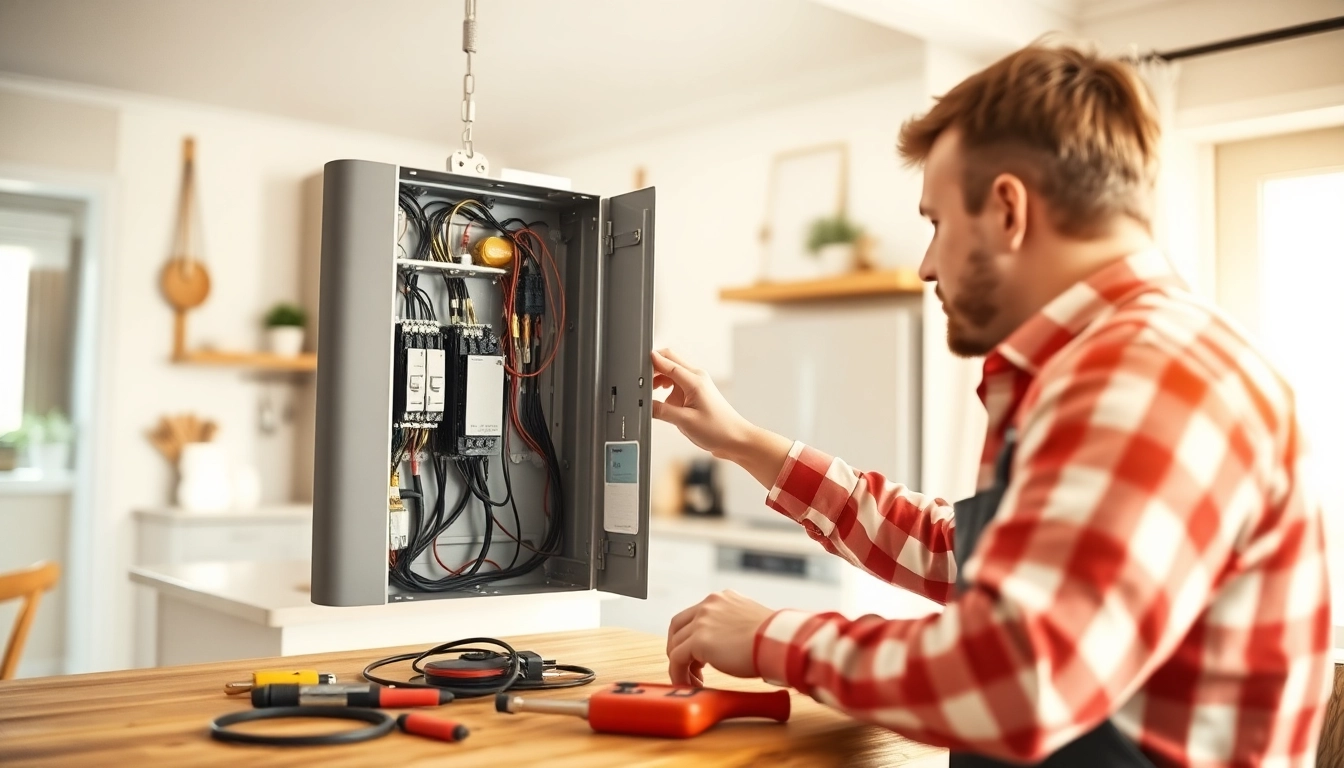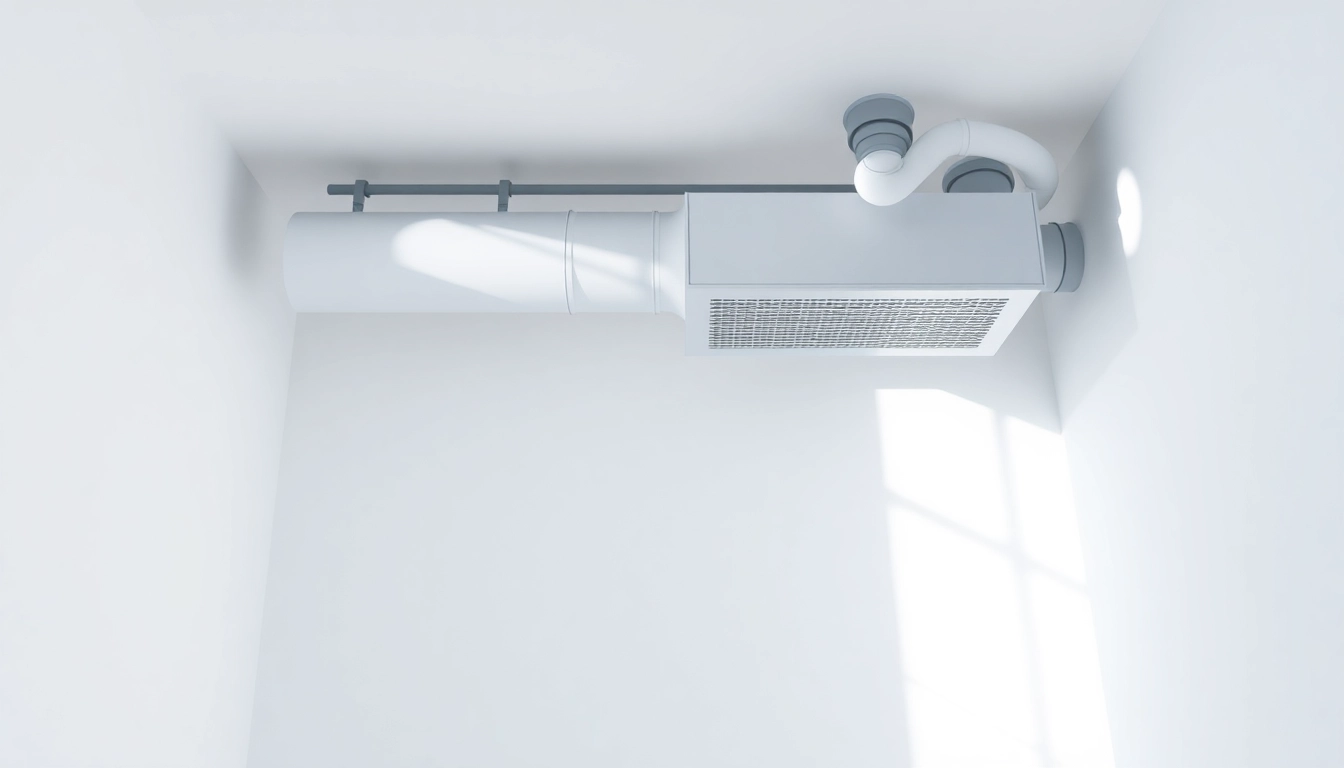The Importance of Upgrading Your Electrical Panel
When it comes to maintaining a safe and efficient home, one of the most crucial aspects is the electrical system, particularly the electrical panel. An Electrical Panel Upgrade is often necessary as homes evolve and energy demands increase. This article explores the importance of upgrading your electrical panel, its benefits, indicators that it’s time for an upgrade, and more.
Benefits of an Electrical Panel Upgrade
Upgrading your electrical panel provides several benefits that contribute to the overall safety, efficiency, and value of your home. Here are some of the key advantages:
- Increased Electrical Capacity: Upgrading from a standard 100 amp panel to a 200 amp panel allows for more circuits and higher load capacity. This capability is essential for modern appliances and technology.
- Enhanced Safety: Older panels may lack modern safety features, increasing the risk of electrical fires or malfunctions. Newer panels come equipped with circuit breakers and surge protectors to mitigate these risks.
- Future-Proofing Your Home: As you install new appliances or take on additional home projects, having a capable panel means you are prepared for future electrical needs.
- Improved Energy Efficiency: New panels are designed with better energy management systems, which can help reduce overall energy consumption and costs.
- Increased Home Value: Prospective buyers often view modern and upgraded electrical systems as significant selling points during a home inspection.
Indicators That It’s Time for an Upgrade
Recognizing when it’s time to upgrade your electrical panel is vital. Here are some common indicators:
- If your panel is more than 20 years old, it may not be equipped to handle today’s electrical load.
- Frequent circuit breaker trips or blown fuses indicate the panel may be overloaded.
- You notice flickering lights or appliances not working optimally, which could signal insufficient power supply.
- When installing new appliances or technology such as electric vehicles, an upgrade may be necessary to meet increased power demands.
- If your electrical panel is not labeled, identifying and managing circuits becomes challenging, which can lead to overloads.
Understanding Your Home’s Electrical Needs
Before upgrading, it’s essential to assess your home’s electrical requirements based on various factors such as:
- Appliance Usage: Cater to high-demand appliances like refrigerators, HVAC systems, and electric vehicle chargers.
- Future Expansion: Consider plans for renovations or additions that will require additional circuits.
- Home Occupants: A larger number of residents typically leads to higher electrical consumption.
Choosing the Right Electrical Panel
Selecting the appropriate electrical panel is crucial, as it dictates performance, safety, and longevity. Here’s what to consider:
Types of Electrical Panels Available
There are several types of electrical panels to choose from, each serving different purposes. Common types include:
- Standard Breaker Panel: The most common type for residential homes, offering flexibility in circuit allocation.
- Subpanels: Often used in larger homes to distribute power to specific areas, reducing strain on the main panel.
- Smart Panels: Equipped with technology that allows for monitoring energy use and troubleshooting issues through an app.
Factors Affecting Electrical Panel Selection
When choosing an electrical panel, consider the following:
- Amperage Needs: Determine the appropriate amperage level (typically 100, 150, or 200 amps) based on your power consumption.
- Brand Reputation: Opt for reputable brands that provide warranties and reliable customer support.
- Local Codes: Ensure compliance with local electrical codes and regulations, which may dictate certain specifications.
Consulting with a Professional Electrician
Engaging a licensed electrician is integral to the process of selecting and installing a new panel. They can assess your home’s electrical needs, provide informed recommendations, and ensure the installation adheres to safety codes.
Cost Considerations for an Electrical Panel Upgrade
Upgrading an electrical panel is a significant investment, and understanding the costs involved will help you budget accordingly. Here are the key cost considerations:
Average Costs Involved in Upgrades
The cost of upgrading an electrical panel can range significantly based on various factors:
- Standard Upgrades: A typical residential panel upgrade from 100 to 200 amps may cost between $1,300 to $3,000, depending on the panel’s complexity and installation conditions.
- Additional Features: If you’re adding smart technology or more circuits, costs can increase accordingly.
- Labor: Labor costs can vary by region; hiring a licensed electrician is always recommended for safety and compliance.
Cost-Saving Tips and Financial Assistance
To manage upgrade costs, consider these tips:
- Shop Around: Get quotes from multiple electricians to ensure you’re getting a fair price.
- Check for Rebates: Some utility companies offer rebates for panel upgrades, especially when accommodating energy-efficient appliances.
- Plan for Off-Peak Times: Scheduling your upgrade during off-peak seasons could reduce labor costs.
Price Variations by Location and Panel Type
It’s essential to note that prices can vary widely based on geographic location and the selected panel type. Urban areas may have higher labor costs, while certain brands or advanced panel technology can add to the base price significantly.
DIY vs Professional Installation: What You Need to Know
As with many DIY home projects, upgrading an electrical panel can be tempting to tackle on your own. However, this decision comes with significant considerations.
Pros and Cons of DIY Electrical Work
Before deciding on a DIY approach, weigh the pros and cons:
- Pros: Potential cost savings and immediate gratification.
- Cons: Risk of safety hazards, potential code violations, and costlier mistakes if something goes wrong.
Safety Considerations During Upgrades
Electrical work can be dangerous if not performed correctly. Always adhere to safety guidelines:
- Turn off power to the panel before beginning any work.
- Wear insulated gloves and use insulated tools.
- Follow local electrical codes and regulations.
When to Hire an Expert Electrician
In most cases, hiring a licensed electrician for your electrical panel upgrade is recommended due to the complexities and dangers involved:
- If the project involves rewiring, significant upgrades, or dealing with permits.
- When you lack experience with electrical work or feel uncertain about safety protocols.
- If you need assistance complying with local code regulations.
Future-Proofing Your Home’s Electrical System
Upgrading your electrical panel isn’t just about meeting current needs; it’s also about preparing for the future. Here’s how to effectively future-proof your electrical system:
Technological Advancements in Electrical Panels
Stay updated on the latest advancements in electrical technology, including:
- Smart Panels: These panels integrate with home automation systems, allowing for remote monitoring and control.
- Energy Management Systems: These help manage power distribution efficiently, ensuring your home is running smoothly.
Preparing for Home Renovations and Additions
If you plan to renovate, ensure your electrical panel can accommodate added circuits. An upgraded panel not only meets present demands but also facilitates the efficiency of future home improvements.
Understanding Local Electrical Codes and Regulations
Electrical codes vary significantly between regions, affecting how you plan upgrades. Understanding local regulations ensures compliance, helping prevent fines and ensuring safety standards are met.
Conclusion
Upgrading your electrical panel is a vital step in maintaining your home’s electrical safety, efficiency, and value. By understanding the benefits, timing your upgrade appropriately, selecting the right panel, and considering future needs, you can ensure your home is ready for today’s electrical demands and tomorrow’s advancements. Whether you’re contemplating an upgrade or ready to make the leap, involve a professional to streamline the process and guarantee a safe configuration for your home.



